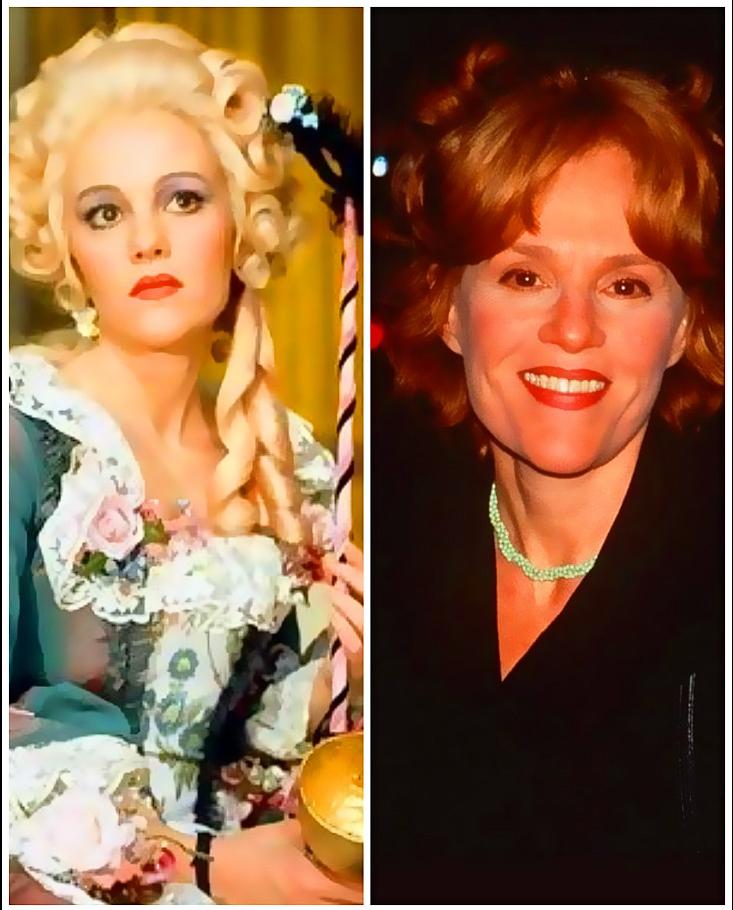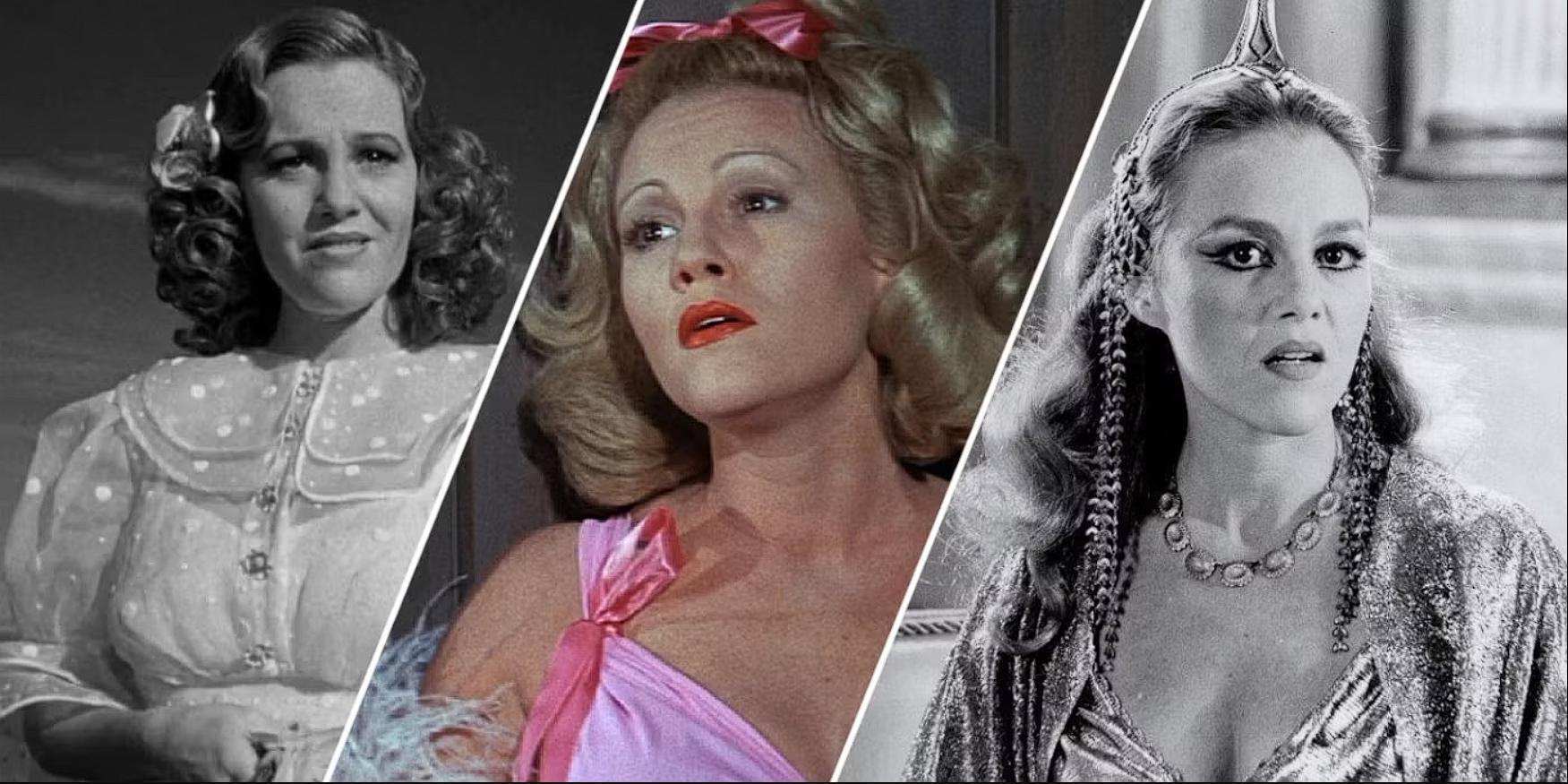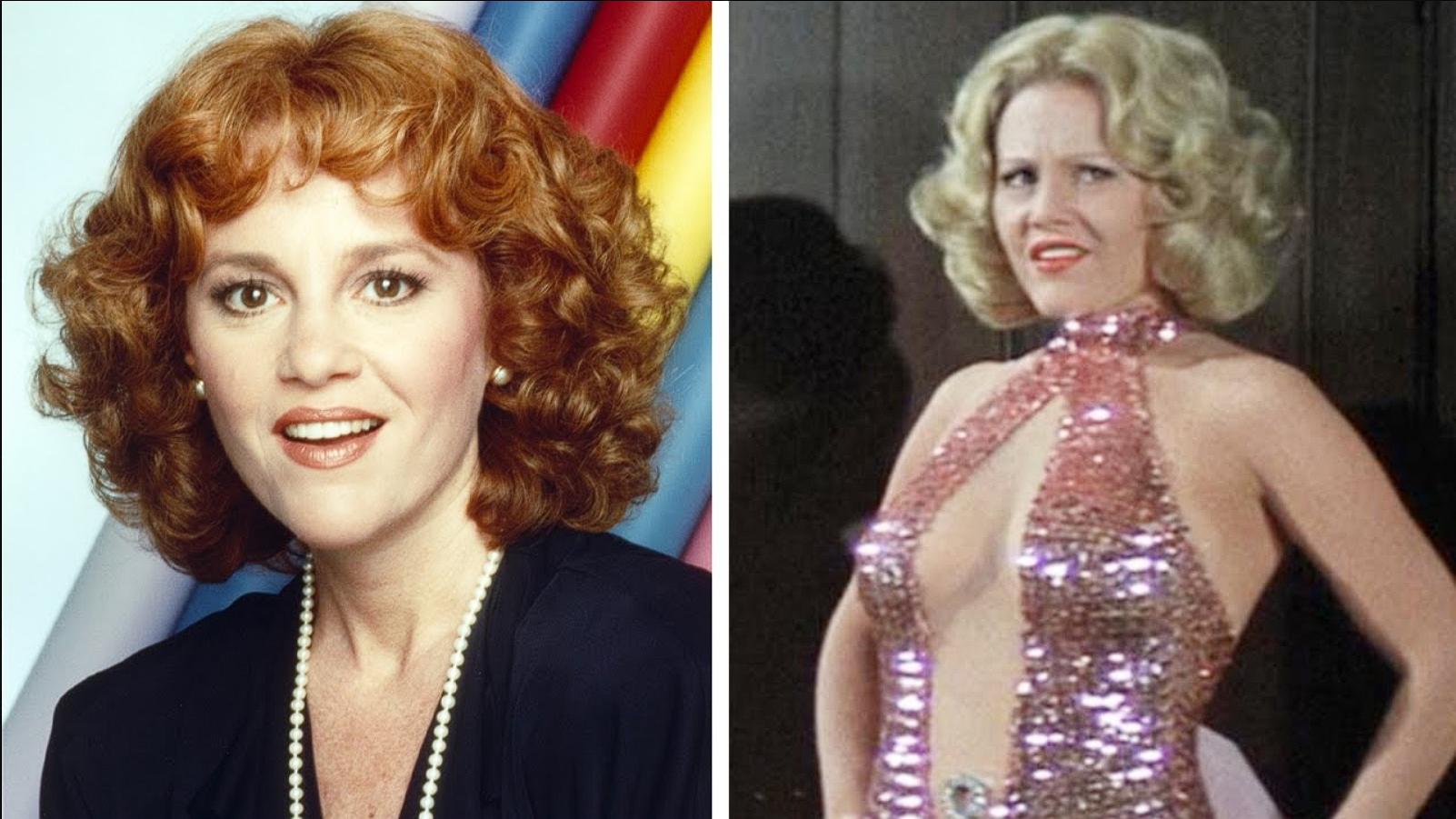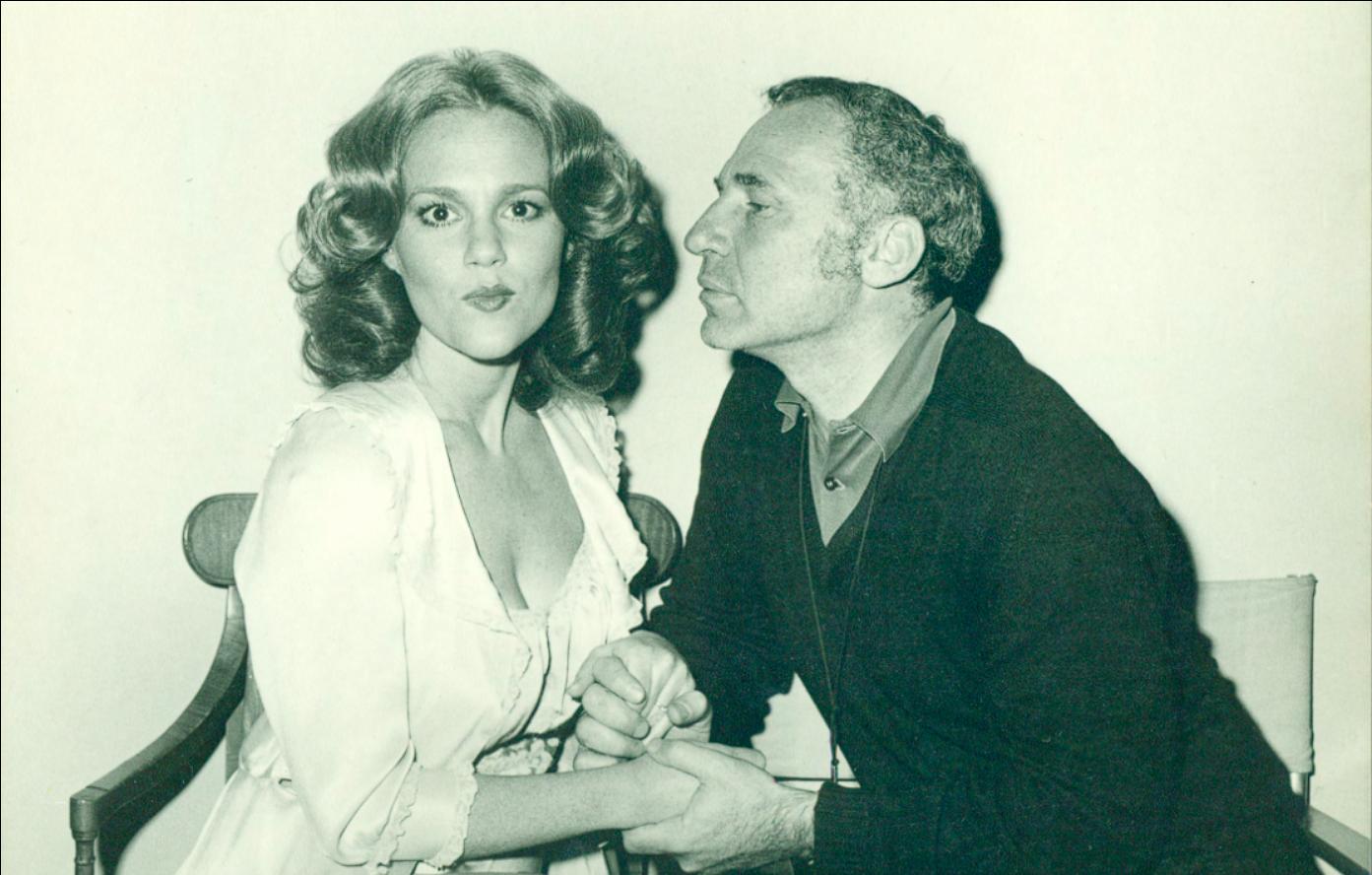During the 1978 rehearsals for On the Twentieth Century, Madeline Kahn, a milkshake in one hand and her beloved tiny dog nestled in the other, sat backstage, having just exited a scene. Unbeknownst to her, from behind the curtain, the esteemed director Harold Prince uttered a remark that would come to define her essence: “She can do everything except be ordinary.” This seemingly offhand observation captured the very core of Madeline Kahn’s extraordinary talent. Moments later, she effortlessly returned to the stage and, without missing a single beat, delivered a complex vocal cue with comedic brilliance. There was no drama, no hint of self-importance, simply a woman who possessed the rare ability to command both a soaring aria and a perfectly timed punchline with the same effortless grace.
From Operatic Dreams to Comedic Brilliance: The Making of Madeline Kahn
Born on September 29, 1942, in Boston, Madeline Kahn’s formative years were primarily spent in the vibrant cultural hub of New York City. Her mother, Paula, a trained singer who later transitioned into stage management, played a pivotal role in nurturing Madeline’s early passion for music. This foundational exposure led Madeline to pursue formal training in drama and voice at Hofstra University, where she diligently honed her skills as a classical soprano. Her initial aspirations lay within the realm of opera, but her innate quick wit, remarkably expressive face, and impeccable knack for comedic timing would ultimately guide her toward a very different kind of stage.
Early Influences and the Call of Music
Madeline’s early life was deeply intertwined with the world of music, thanks to her mother’s background and encouragement. This early immersion fostered a genuine love for vocal performance and laid the groundwork for her later operatic training. The discipline and artistry inherent in classical music would subtly inform her comedic performances, adding a layer of sophistication to her inherent silliness.
Hofstra University: Honing the Classical Soprano
At Hofstra University, Madeline dedicated herself to the rigorous study of drama and classical voice, training diligently to become a soprano. This formal training provided her with a strong technical foundation in vocal control, breath management, and musicality – skills that would surprisingly enhance her comedic timing and delivery in unexpected ways.
The Magnetic Pull of Comedy: A Twist of Fate
Despite her operatic aspirations, Madeline’s inherent comedic talents began to shine through during her university years and early theatrical endeavors. Her quick wit and expressive physicality naturally drew her towards comedic roles, hinting at the extraordinary comedic force she was destined to become. This unexpected pull towards comedy marked a significant turning point in her artistic journey.
Mastering the Stage: From Mozart to Mel Brooks
Madeline Kahn’s early career saw her honing her craft in the dynamic world of New York theater and summer stock. It was during this period that colleagues swiftly recognized the rarity of her talent: a performer who could seamlessly transition from the demanding intricacies of Mozart to the uproarious absurdity of Mel Brooks without missing a beat. This unique blend of elegance and absurdity would become her unmistakable signature.
New York Theater and Summer Stock: Forging a Unique Talent
The demanding environments of New York theater and summer stock provided Madeline with invaluable experience, pushing her to explore a wide range of characters and performance styles. It was here that her remarkable ability to navigate both serious and comedic roles with equal skill became evident, setting her apart from her peers.
The Rare Blend: Elegance Meets Absurdity
Madeline possessed the rare ability to infuse even the most outlandish comedic scenarios with a touch of elegance and sophistication. Her classical training provided her with a unique sense of poise and control, which she masterfully juxtaposed with her comedic instincts, creating a style that was both hilarious and surprisingly refined.
A Seamless Transition: From Highbrow to Hilarious
Her colleagues were continually astounded by Madeline’s effortless ability to shift between the demanding world of classical music and the often chaotic realm of comedy. This seamless transition highlighted her exceptional versatility and her deep understanding of performance, regardless of genre.
Hollywood’s Embrace: The Rise of a Comedic Star
Madeline Kahn’s undeniable talent soon caught the attention of Hollywood. Her film debut in Peter Bogdanovich’s 1972 screwball comedy, What’s Up, Doc?, where she played the hilariously high-strung and perpetually bewildered fiancée opposite the comedic brilliance of Barbra Streisand and Ryan O’Neal, served as the launchpad for her burgeoning film career.
What’s Up, Doc?: A Hilarious Film Debut
Madeline’s performance in What’s Up, Doc? was nothing short of a revelation. Her portrayal of the exasperated Eunice Burns showcased her impeccable comedic timing and her ability to elicit laughter through both physical comedy and perfectly delivered lines. This role immediately established her as a comedic force to be reckoned with in the world of cinema.
Mel Brooks’ Muse: The Birth of Lily Von Shtupp
Legendary comedic filmmaker Mel Brooks was immediately captivated by Madeline’s performance in What’s Up, Doc?. Recognizing her extraordinary comedic gifts, he knew instantly that she was the perfect embodiment of his iconic character, Lily Von Shtupp, in the groundbreaking satirical Western, Blazing Saddles.
Blazing Saddles: Parodying Dietrich with Bawdy Brilliance
In Blazing Saddles, Madeline Kahn delivered a performance of unparalleled comedic brilliance, hilariously parodying the legendary Marlene Dietrich with a bawdy and unforgettable twist. Her rendition of “I’m Tired” became an instant classic, earning her an Academy Award nomination for Best Supporting Actress and solidifying her status as a major comedic talent. As Mel Brooks himself aptly stated, “She had that Dietrich thing, but filtered through a Brooklyn accent and a college education. It was like lightning in a bottle.”
A Comedic Force Unleashed: Triumphs on the Silver Screen
Following her breakout role in Blazing Saddles, Madeline Kahn continued to deliver a string of iconic comedic performances that cemented her place as one of the most beloved and talented comedic actresses of her generation.
Young Frankenstein: The Aloof Perfection of Elizabeth
In Mel Brooks’s comedic masterpiece, Young Frankenstein, Madeline Kahn once again struck comedic gold with her portrayal of Elizabeth, the aloof and dramatically inclined fiancée of Frederick Frankenstein. Her exaggerated gasps, theatrical faints, and perfectly timed pronouncements became instant hallmarks of the film. Gene Wilder, the film’s star and co-writer, fondly recalled, “She made me break character more than anyone. Her instincts were unteachable.”
Paper Moon: Challenging the Norm with Instinctive Brilliance
While her comedic instincts were often lauded, Madeline wasn’t afraid to challenge the status quo. On the set of Peter Bogdanovich’s poignant comedy-drama, Paper Moon, her insightful tweaks to the dialogue occasionally ruffled feathers, particularly with the director. “I thought I was helping,” she later explained, highlighting her collaborative spirit. “He thought I was rewriting his genius.” Despite any creative friction, her nuanced and memorable performance earned her another Academy Award nomination, further validating her unique and often unconventional comedic instincts.
A Legacy of Laughter: Iconic Roles and Enduring Appeal
Madeline Kahn’s filmography is filled with iconic comedic roles that continue to bring laughter to audiences today. Her unique blend of sophistication and silliness, coupled with her impeccable timing and expressive delivery, created a body of work that remains both timeless and endlessly entertaining.
The Stage Beckons Again: Triumph and Tribulation
In later years, the allure of the stage called Madeline Kahn back. In 1993, she achieved further critical acclaim, winning a Tony Award for her exceptional performance in Wendy Wasserstein’s play, The Sisters Rosensweig. However, even amidst this professional triumph, her health was quietly faltering. Having been diagnosed with ovarian cancer, Kahn bravely chose to keep her illness private, continuing to work steadily through her treatments with remarkable fortitude.
The Sisters Rosensweig: A Tony-Winning Return to the Stage
Madeline’s return to the stage in The Sisters Rosensweig was met with widespread critical acclaim, culminating in her well-deserved Tony Award win. Her performance showcased her dramatic range and her ability to connect deeply with audiences in a live theatrical setting.
A Private Battle: Courage Amidst Illness
Despite her ongoing battle with ovarian cancer, Madeline Kahn displayed extraordinary courage and professionalism, choosing to keep her illness private and continuing to work with unwavering dedication. Her commitment to her craft during this challenging time is a testament to her strength of character.
Cosby: A Final Act of Professionalism and Grace
One of her final roles was on the television series Cosby. As Bill Cosby poignantly described it, “She would finish a scene, go lie down, and then come back with the same energy as if she’d just woken up from vacation. That’s courage I’ve rarely seen.” This anecdote beautifully illustrates Madeline’s remarkable professionalism and unwavering spirit in the face of adversity.
A Quiet Farewell: Love, Laughter, and Lasting Impact
In October 1999, Madeline Kahn found happiness and love, marrying her longtime partner, John Hansbury, in a small and intimate ceremony in the serene beauty of Central Park. Tragically, her time with him was brief. Just two months later, on December 3, at the age of 57, Madeline Kahn passed away. A friend who was present at her wedding fondly recalled her remarkable spirit: “She was calm. She said, ‘I want to laugh all the way through the hard parts.’ And she did.”
Conclusion: The Enduring Magic of Madeline Kahn
Madeline Kahn never sought the spotlight; rather, she illuminated it simply by stepping into its glow. Whether through a perfectly timed comedic delivery, a soaring musical note, or a hilariously exaggerated swoon, she brought an undeniable magic to everything she touched. Her extraordinary talent, her unique blend of elegance and absurdity, and her unwavering spirit in the face of personal challenges have left an indelible mark on the world of entertainment. Madeline Kahn’s legacy as a comedic genius and a woman of remarkable grace and courage will continue to inspire and bring laughter to audiences for generations to come.
